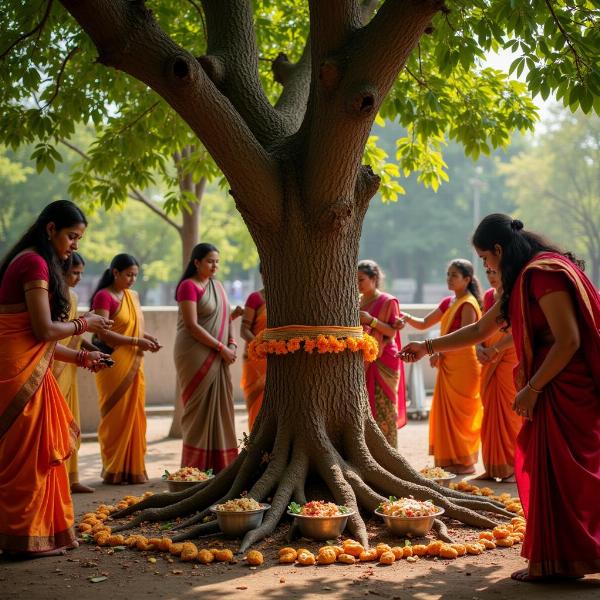Touch wood. We’ve all heard it, and many of us probably say it. But what does “touch wood” actually mean, especially in the context of the Hindi language and Indian culture? This article delves into the meaning of “touch wood” in Hindi, exploring its origins, cultural significance, and various regional interpretations across India. We’ll also discuss the superstition’s connection to other similar practices around the world.
The Essence of “Touch Wood” in Hindi
The Hindi equivalent of “touch wood” can be expressed in several ways, depending on the region and dialect. Some common phrases include “Lakdi ki chhoona” (लकड़ी की छूना) or “Lakdi ka sparsh karna” (लकड़ी का स्पर्श करना), both literally translating to “touching wood.” These phrases embody the same superstitious belief as the English version: warding off bad luck or negating a boastful statement. For example, someone might say “My exam went well, touch wood,” to avoid jinxing their good fortune.
Origins and Cultural Significance
The origins of the “touch wood” superstition are shrouded in mystery, with several theories vying for acceptance. One prevalent theory links it to ancient pagan practices of appealing to tree spirits for protection. Trees were often considered sacred, housing benevolent entities that could offer safeguard against misfortune. Touching wood, therefore, was seen as a way to invoke these protective spirits.
In India, the reverence for nature, particularly trees, is deeply ingrained in the cultural fabric. Trees are not merely seen as providers of shade and oxygen but also as symbols of life, growth, and divinity. This inherent respect for nature could have contributed to the adoption and perpetuation of the “touch wood” superstition.
 Tree Worship in India
Tree Worship in India
Regional Variations and Practices
While the core concept remains consistent, the specific ways in which “touch wood” is practiced can vary across different regions of India. In some communities, people might touch a specific type of wood or a particular tree considered sacred. In others, the act might be accompanied by a silent prayer or a specific mantra. For instance, some individuals might whisper the name of a deity while touching wood.
“Touch Wood” Around the World
The “touch wood” superstition is not unique to India. Similar practices exist in numerous cultures worldwide. In some European countries, the phrase is “knock on wood,” while in others, it might involve touching iron or spitting three times. These variations suggest a universal human desire to control fate and avert misfortune.
Is it Just Superstition?
While there’s no scientific evidence to support the efficacy of “touch wood,” its continued practice highlights the psychological comfort it offers. It provides a sense of control in a world often perceived as unpredictable. Whether or not it actually wards off bad luck, “touch wood” serves as a reminder to appreciate good fortune and approach life with a touch of humility.
Conclusion: More Than Just a Habit
“Touch wood meaning hindi” encompasses a rich tapestry of cultural beliefs and practices. It’s a reflection of India’s deep-rooted reverence for nature and the enduring human desire to influence fate. While its origins remain debated, its continued practice speaks volumes about its psychological and cultural significance. So, next time you hear someone say “touch wood,” remember that it’s more than just a superstition; it’s a connection to a rich and complex cultural heritage.
FAQ
-
What is the exact Hindi translation of “touch wood”? While there isn’t one single exact translation, common phrases include “Lakdi ki chhoona” (लकड़ी की छूना) and “Lakdi ka sparsh karna” (लकड़ी का स्पर्श करना).
-
Why do people touch wood? It’s believed to ward off bad luck after making a boastful statement or expressing hope for good fortune.
-
Is “touch wood” unique to India? No, similar practices are found in various cultures around the world.
-
Is there any scientific basis for “touch wood”? No, it is primarily considered a superstition.
-
What is the cultural significance of “touch wood” in India? It reflects the reverence for nature, especially trees, which are often considered sacred.
Relevant Articles:
Meaning-Hindi.in offers professional translation services in a multitude of languages, including Hindi. Our expertise spans various fields, from business and legal documents to technical manuals and website localization. We also offer specialized translation services for educational and academic materials. Need a fast and accurate translation? Contact us at [email protected] or call us at +91 11-4502-7584. Meaning-Hindi.in is your trusted partner for all your translation needs.